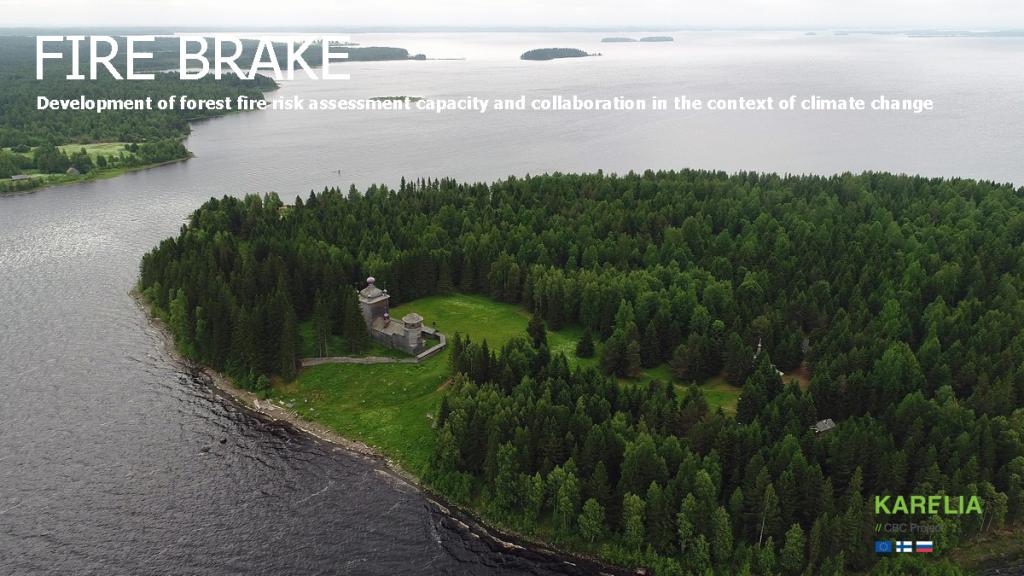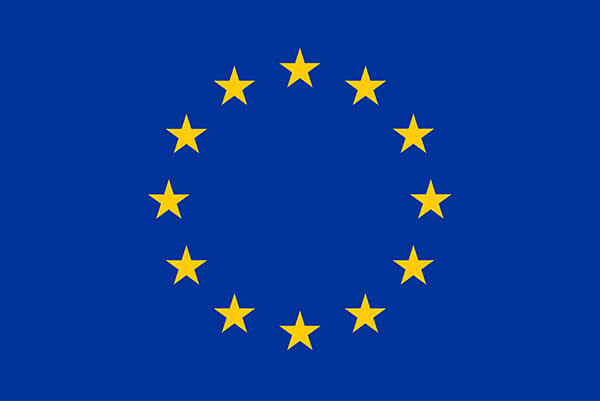Fire Brake - KA2013
The risk for forest and wildland-urban interface fires is acknowledged to increase, as the climate is getting warmer. The situation has direct effect on not only forest land managers, but also to the general public on the affected regions. Hence, the Fire Brake – micro project aims to improved knowledge and collaboration in the field of forest fire risk assessment and management between Finland and Russia. By researching the different entities operating with forest fire risk management from both sides of border, their challenges and resources, it is possible to identify the bottlenecks and areas that need further development and capacity building actions. Increased cooperation between entities within the field will also encourage enhanced share of know-how.

Project news
Background
In the Karelia CBC programme region, forest is the dominant ecosystem, covering some 150 000 km² of the total 172 000 km² area of the Republic of Karelia, and 67 500 km² of the 81 320 km² of North-Ostrobothnia, Kainuu and North-Karelia regions. Simultaneously, it is widely accepted that the risk of forest fires will increase in Finland and Russia due to the climate change; together with wind storms, forest fires are one of the largest natural threats that boreal forests have to cope with.
Many organizations and forest land managers are facing the issue of lack of information regarding forest fire risk. Fire mitigation and monitoring can be expensive, and forest fire response is slowed down by the need of investigating the conditions in the field instead of making good decisions immediately in case of fire. This situation leads to forest fires getting bigger before they are suitably controlled.
By improving the forest fire monitoring and modelling capacities, forest land managers like national parks or official bodies can mitigate risks more efficiently. The population of the territories will directly benefit from the actions that have an influence on the environment, and especially on the quality of air, but the activities also underline the aspect of security of the wildland-urban interface fires.
Project implementation
Fire Brake -project is implemented between October 2018 – April 2019. During the project, the project team will:
- research and study the different entities that operate in the field of forest fire risk assessment and management in both sides of the border;
- consult the different entities to better understand the various needs, expectations and capacities regarding forest fire risk assessment and management, as well as to gain insight on the biggest risks and bottlenecks in the sector;
- review available solutions for forest fire monitoring and modelling – what is currently in use and what should be further developed to improve the situation;
- and lastly produce an information package, composed of the knowledge gained during the project, that will be published for the use of organizations operating with forest fire risk assessment and management.
Project team
In Fire Brake -project, a Joensuu-based technology company specialized in open source GIS solution development and remote sensing data exploitation, Oy Arbonaut Ltd, is collaborating with a nature protection, research and environmental education establishment, Vodlozero National Park.
Oy Arbonaut Ltd
Kaislakatu 2, 80130 Joensuu, Finland
www.arbonaut.com
Elisa Korpelainen
Project Manager
elisa.korpelainen@arbonaut.com
Vodlozero National Park
44 Parkovaya Street, Petrozavodsk, Republic of Karelia, Russia 185002
Vyacheslav Dedov
Project Coordinator
dedovvju@vodlozero.ru




